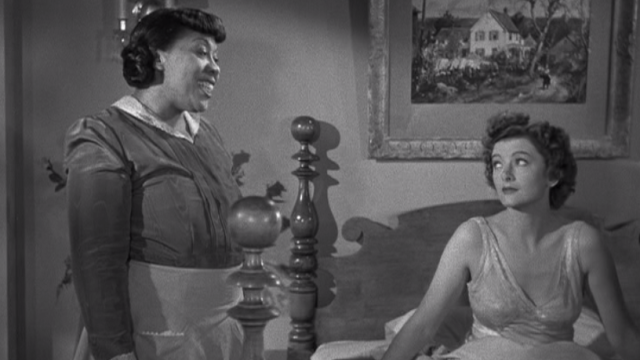It will never not annoy me when I read about black people who were given lessons by a white person on “racial dialect.” Lillian Randolph was tutored for three months before she actually acted on the radio—she’d been singing for a while—because George W. Trendle, who “discovered” her, decided that was necessary I guess. There was a time in American entertainment where it was just expected that all black people had the same dialect, and if they didn’t going in, they by-Gods would before they acted for things white people would experience.
Lillian Randolph was born in Knoxville, Tennesse; along with sister Amanda, also an actress, she was the daughter of a Methodist minister and a teacher. Lillian, the younger sister, began by singing on the radio. Trendle decided she should also act; within five years, she moved to Los Angeles to be on Al Jolson’s radio show. She was also on Amos ‘n’ Andy, and shortly after her move to Los Angeles, she started work in film. As her career went on, she would do some television as well. Frankly, a black woman of her era couldn’t be picky if she wanted to work in Hollywood.
Which does mean that many of her roles haven’t exactly aged well. Oh, I can only work out for sure that she played a slave twice. Once early in her career, in the movie Way Down South, which definitely sounds like a movie, she played “Slave (uncredited).” And she was on Roots. On the other hand, she was on Amos ‘n’ Andy—apparently both the TV show and the radio show. She, along with Amanda, voiced radio maid Beulah for a while. And she voiced 47 MGM cartoons, mostly as a character called “Mammy Two-Shoes.”
And, of course, there were an awful lot of maids. She worked at the Bailey boarding house in It’s a Wonderful Life. She helped raise Shirley Temple in The Bachelor and the Bobby-Soxer. She worked for the Gildersleeves, both in movies and on TV. She may not be as memorable as fellow Beulahs Hattie McDaniel and Louise Beavers, but she was a solid, familiar preference in quite a lot of the entertainment of the middle of the twentieth century. Apparently, she was hired on The Great Gildersleeve for her laugh, and it was a fantastic laugh.
Behind the scenes, she did a lot, too. Lena Horne stayed in her house during Horne’s first movie, which Randolph was in as well, because the budget on the film was too tight to spring for a hotel for Horne. During World War II, Randolph opened her home weekly for dinners and entertainment for servicemen, as many other people in Hollywood did. She taught acting classes. And I think it’s pretty safe to say that the ones she taught didn’t require people to pick up “regional dialect” they didn’t already have to imply that all people of their background have the same dialect separate from everyone else.
My budget’s pretty tight, too; help me out by supporting my Patreon or Ko-fi!

